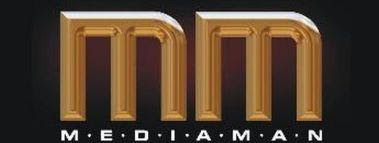Australian Communications Minister and Senator Stephen Conroy has continued to make waves as his crusade to filter out the Internet from the evils of porn, online poker, religion, YouTube links and political incorrectness continues.
Now there is a war of words between Conroy and Internet Service Provider, iiNet, that has made headlines.
From iTWire:
"The public slanging between the Communications Minister and iiNet is hard to find a precedent for in the ICT industry. The CEO of iiNet, Michael Malone, has told iTWire and a number of other media sources quite openly that he believes Senator Conroy is the worst Communications Minister ever and described him as incompetent.
"Malone also told iTWire last year that iiNet would participate in the then upcoming filter trial just to show the world how easy it would be to break. "A 16 year old could crack it in five minutes," he said.
This week, the Communication Minister made some unusual - and some say slanderous - remarks against iiNet while speaking at a public telecoms conference.
From iTWire:
"He described iiNet's claim that it didn't know what material its customers were downloading as "stunning" and he likened iiNet's defence strategy to a "Yes Minister episode".
"Both remarks made by a Federal Government Minister about an ongoing court case have raised the ire of not only iiNet but members of the legal community as well as the opposition.
"It has been suggested that iiNet could have a case for pursuing Senator Conroy for defamation but even worse for the Minister there is a possibility his remarks could be deemed as contempt of court."
Conroy has faced severe criticism for his Internet censorship policies from ISPs, network administrators, some children's welfare groups, the Liberal party and the Greens. While initially promoted as a way to protect children from child pornography, the censorship policy has been extended to include a much broader range of material, including sites depicting drug use, crime, sex, cruelty, violence or "revolting and abhorrent phenomena" that "offend against the standards of morality". In addition, surveys have revealed strong public opposition to the policy. A survey conducted by Netspace showed only 13.6% agreed that the government should make filtering mandatory, and 78.9% disagreed. Conroy proposes the ACMA control the filtering.
On 19 March 2009 it was reported that ACMA's blacklist of banned sites had been leaked online, and had been published by Wikileaks (link). Conroy described the leak and publication of the blacklist as "grossly irresponsible" and that it undermined efforts to improve "cyber safety". He said that ACMA was investigating the incident and considering a range of possible actions including referral to the Australian Federal Police, and that Australians involved in making the content available would be at "serious risk of criminal prosecution". Wikileaks replied that they will refer any matter to discover their sources to the Swedish Constitutional Police (under whose jurisdiction Wikileaks is published) and pursue extradition charges if it is found such persons have breached their sources' fundamental rights to anonymity.
Stephen Conroy had not faced an interview about the issue for at least six months prior to him appearing on the ABC show 'Q&A' on March 26 2009, and the SBS show 'Insight' on March 31 2009, where he defended the policy in front of critics and supporters of the policy. (Credit: Gambling911).
Media Man Australia Profiles
Politics
